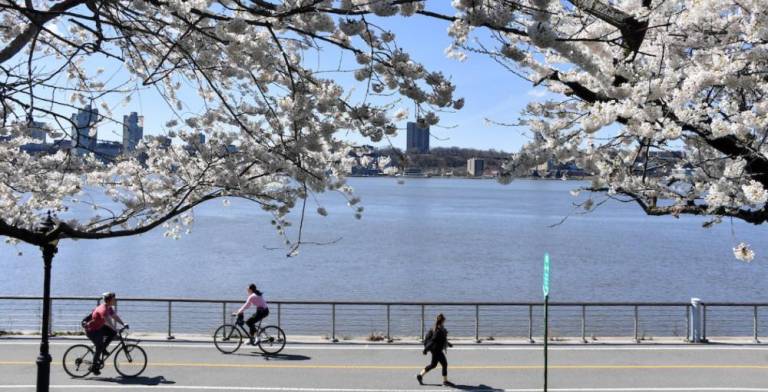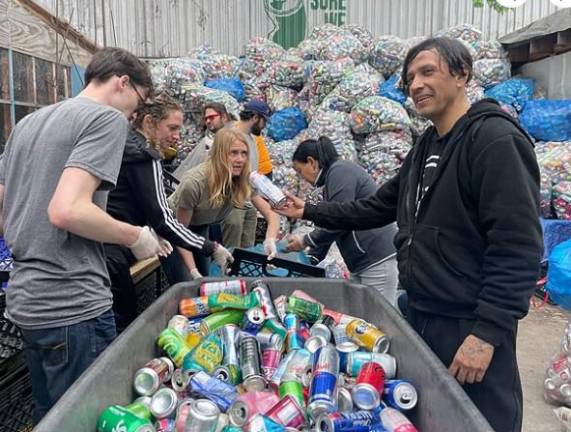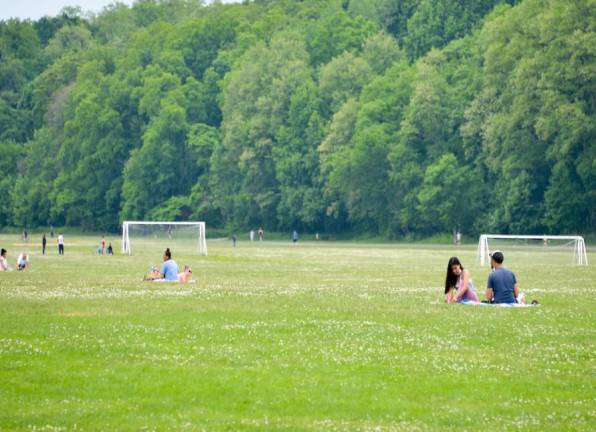Earth Day: How Families Can Tackle Climate Change and Care for Nature Locally
April 22 marks the 54th celebration of Earth Day and while it is a global event that has spread to over 140 countries, there is lots you can do locally that can have an impact. Here’s some ideas.



Earth Day, which was first celebrated in 1970 will mark its 54th year on April 22. The global coordinator, Earthday.org has made “Planet vs. Plastics” the theme of this year’s event. It is using the worldwide celebration which is now marked in over 140 countries to sound the alarm about the health risk of plastics, urging everyone to rapidly phase out all single use plastics, and push for a strong UN Treaty on Plastic Pollution, and demand an end to fast fashion. Beyond the global scale, are lots of things that people can do on the local level.
The New York City Parks Department points out that while you can’t care for every tree in the city, you can become a steward for trees on your own block.
“Trees offer clear environmental and ecological benefits to the city. They clean our air, keep us cool, save on energy bills, and provide a healthy environment for future generations,” the Parks Dept. web site points out. “Take the first step to caring for your tree: use the NYC Street Tree Map to find out how to water, weed, and plant your street tree bed.
Does your block need more trees? Find out how you can have a tree planted on your sidewalk.
It also urges residents to ride a bike. Air pollution is still a serious threat in NYC. Riding a bike requires no fuel, unlike most cars, buses, and other motor vehicles that release toxic gas into the city we love. Grab the NYC Bike Map and plan your next trip.
Jason Samuel, the director of Nature Place, a summer camp located in North Rockland County that attracts lots of city kids to its summer camp stressed the significance of food when it comes to sustainability. In his family, he tries to be very conscious of reducing food waste and plastics used for preserving food. While many people use saran wrap or aluminum foil to save leftovers, Samuel invests in reusable, washable bags that don’t have to be thrown away after one use. The overarching goal in making cooking and food consumption more eco-friendly is to find things that you can use as much as possible.
For example, when Samuel goes out to eat at a restaurant, he brings a glass container to pack out leftover food, which serves an environmental purpose for two reasons: reducing food waste and use of Styrofoam takeout boxes. Another area of everyday life where most people could be more conscious about sustainability is transportation. Making the choice to drive for seven hours versus flying for two can make all the difference when it comes to reducing your carbon footprint. He has also noticed another benefit of choosing driving over flying: getting to see more of the country and building a different appreciation for nature.
Flying out of an airport provides the opportunity to mainly just see the surrounding city, but driving allows families to explore less populous parts of the country. Making a commitment to take a hike once a month as Samuel does with his family can build a stronger connection with nature.
Regularly spending time outside can make us more aware of the effects that humans have on nature and bring more attention to how we can better care for the world around us.
But even if you never make it into the country side, the NYC Parks Dept. said you can volunteer to help keep the city’s parks green and clean, simply by placing trash that could potentially harm wildlife in proper receptacles. “Leaving trash behind can harm our ecosystems—wildlife might pick at it for food, it may make it more difficult for some plants to flourish, and it may end up in waterways and cause harm to underwater life that keeps our water bodies clean,” the Parks Dept. website on Earth Day says. “If you’d like to do more to help keep our parks clean and beautiful, join one of our upcoming volunteer events!
Samuels at the Nature Place agrees, noting it is an incredibly impactful experience for children to learn how valuable nature is and how to take care of it.